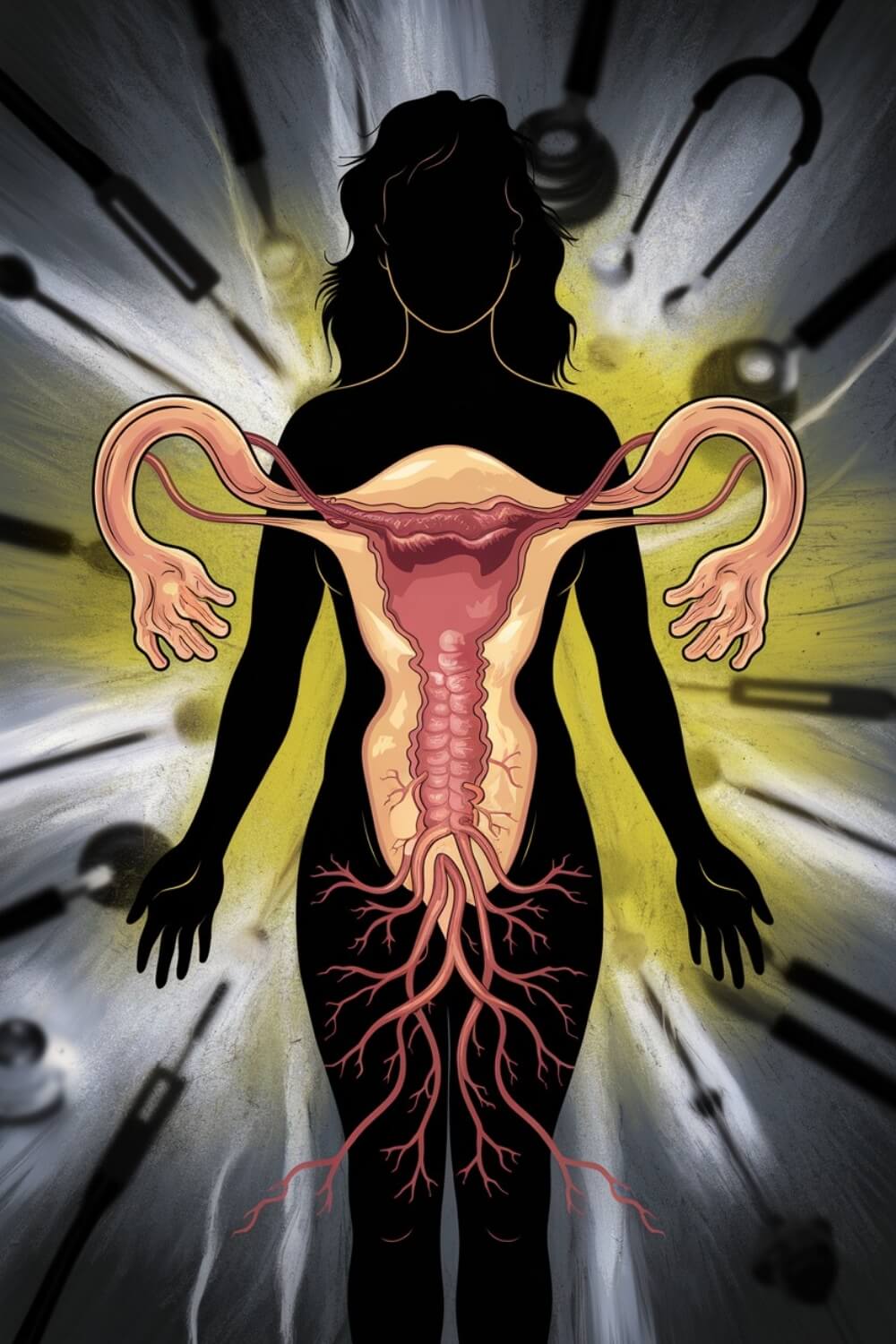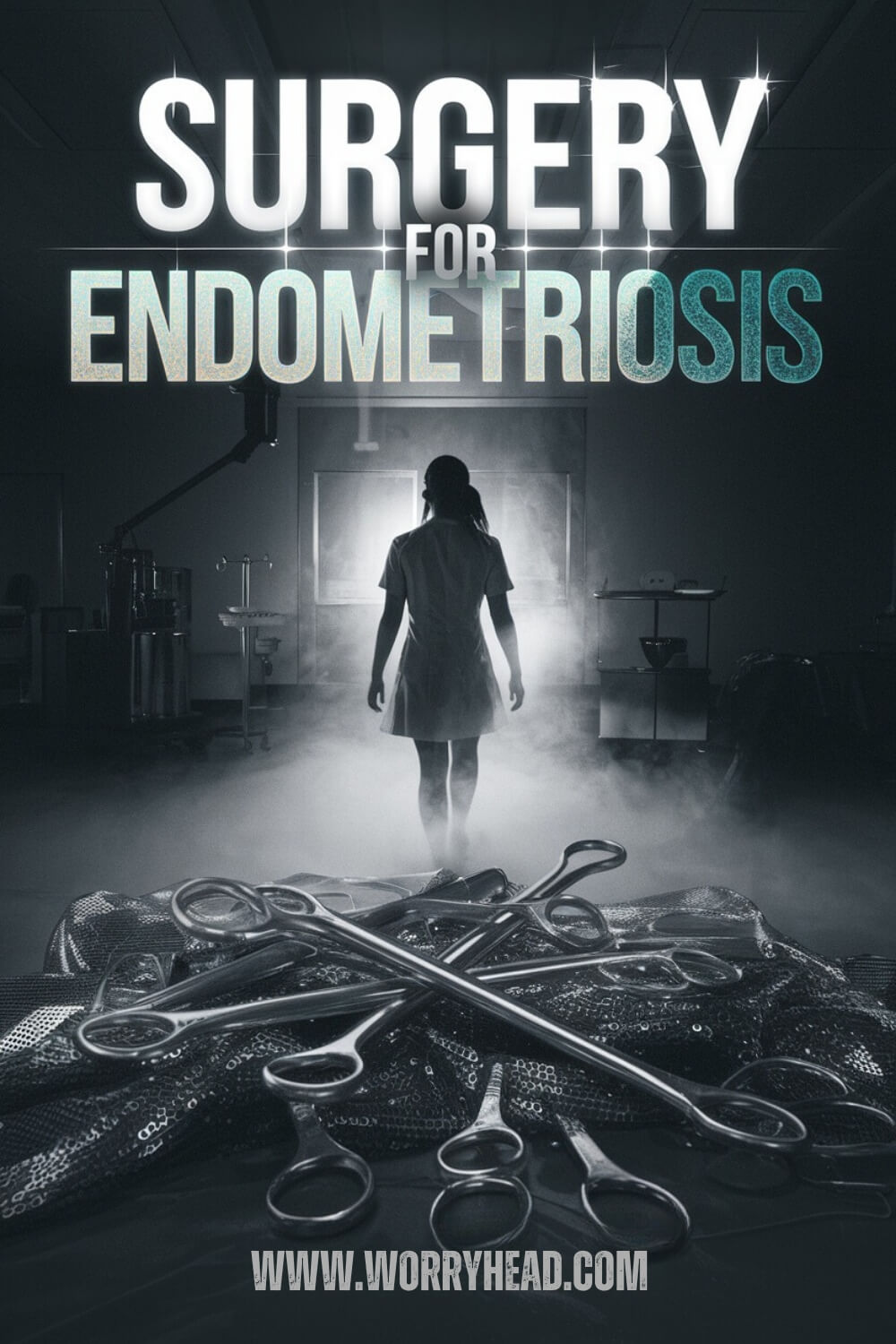Partner’s Perspective on Endometriosis Surgery
Welcome to the first section of our article series on endometriosis surgery from a partner’s perspective. In this section, we will explore the various impacts of endometriosis on male partners and shed light on the emotional and practical challenges they face.
Endometriosis is a chronic gynecological condition that affects millions of women worldwide. However, little is known about the specific impact it has on male partners. That’s why it is crucial to dive into this topic, understand the unique struggles they encounter, and provide support and recognition for their role in endometriosis care.
Through the ENDOPART study conducted in the UK, we discovered that endometriosis affects multiple domains of a male partner’s life. From sex and intimacy to family planning and work life, the impact is far-reaching. The study also uncovered the emotional toll it takes, including feelings of helplessness, frustration, worry, and anger.
Unfortunately, there is a lack of support and recognition for the impact on male partners in the realm of endometriosis care. This results in their marginalized status, leaving them with few avenues to voice their concerns and find solutions.
Stay with us as we delve deeper into the effects of endometriosis on partners and explore coping strategies, treatment options, and the importance of a supportive network. Together, we can empower partners to navigate the challenges of endometriosis surgery and strengthen their relationships.
- Understanding Endometriosis and Its Impact
- The Emotional Impact on Male Partners
- Impact on Intimate Relationships and Sexuality
- Impact on Fertility and Family Planning
- Diagnosis and Treatment Options for Endometriosis
- Support and Coping Strategies for Partners
- Impact on Daily Life and Work
- Dealing with Fertility Challenges
- Long-Term Outlook and Management
- Seeking Professional Help and Resources
- Conclusion
- Source Links
Understanding Endometriosis and Its Impact
Endometriosis is a chronic gynecological condition that affects approximately 2 to 10% of women of reproductive age. It occurs when endometrial-like tissue grows outside the uterus, leading to inflammation and potentially causing pain and other symptoms. While the impact of endometriosis on women’s quality of life has been extensively studied, the specific effects on male partners have been largely overlooked. It is crucial to understand the comprehensive impact of endometriosis on both partners to provide appropriate support and resources.
Studies have shown that endometriosis can have detrimental effects on intimate relationships, including sexual function and satisfaction. The presence of chronic pain and other symptoms can lead to changes in sexual activity and desire, affecting both partners. Furthermore, endometriosis can also impact fertility and family planning, adding additional emotional and practical challenges for couples.
By understanding the specific effects of endometriosis on partners, healthcare providers can develop targeted support resources and interventions to address the unique needs of couples affected by this condition.
To grasp the full extent of the impact of endometriosis on partners, it is crucial to acknowledge the emotional toll it can take. Men often experience feelings of helplessness, frustration, worry, and anger when their partner has endometriosis. These emotional responses can mirror the Kubler-Ross grieving process, with stages such as shock, denial, anxiety, and acceptance.
The lack of recognition and support for the emotional impact on male partners further contributes to their marginalized status in endometriosis care. It is essential to prioritize the emotional well-being of male partners and provide them with the necessary support and resources to navigate the challenges of endometriosis.
Impact of Endometriosis on Partners
| Domain | Impact on Partners |
|---|---|
| Intimate Relationships | Negative effects on sexual function, satisfaction, and intimacy |
| Fertility and Family Planning | Challenges in conceiving, decision-making regarding fertility treatments |
| Emotional Well-being | Feelings of helplessness, frustration, worry, and anger |
| Support and Recognition | Marginalized status in endometriosis care, lack of available support |

The Emotional Impact on Male Partners
Endometriosis can have a significant emotional impact on male partners. When their partner has endometriosis, men often experience feelings of helplessness, frustration, worry, and anger. These emotions can arise from witnessing their partner’s pain and suffering, as well as from the challenges and uncertainties that come with managing the condition.
Unfortunately, the emotional impact on male partners is often overlooked and not widely recognized in the context of endometriosis care.
Research has described men’s emotional responses to endometriosis as resembling the stages of the Kubler-Ross grieving process. Men may experience shock and denial upon learning about the diagnosis, followed by anger, anxiety, and feelings of isolation. They may feel powerless in the face of their partner’s chronic pain and the limitations it imposes on their lives. Low mood and a sense of acceptance may also be part of the emotional journey.
The Importance of Recognizing and Addressing Emotional Needs
It is essential to recognize and address the emotional needs of male partners in the management of endometriosis. Providing support and validation for their experiences can help alleviate feelings of isolation and helplessness. Creating a space for open and honest communication allows partners to express their fears, concerns, and frustrations. It is crucial for healthcare providers to acknowledge the emotional impact on male partners and offer resources and guidance to help navigate these challenges.
Additionally, seeking professional counseling or joining support groups can provide a supportive network and coping strategies for male partners. These resources allow partners to connect with others who understand their experiences, share advice and insights, and learn effective ways to support their partners on their endometriosis journey.
By addressing the emotional impact and providing support, we can enhance the overall well-being of both individuals in the relationship and foster a stronger sense of unity and understanding.
| Emotional Impact on Male Partners | Ways to Address Emotional Needs |
|---|---|
| – Feelings of helplessness, frustration, worry, and anger | – Open and honest communication with healthcare providers |
| – Resemblance to Kubler-Ross grieving process stages | – Seeking professional counseling or therapy |
| – Isolation and low mood | – Joining support groups and connecting with others |
| – Recognizing emotional impact and validation | – Sharing fears, concerns, and frustrations |

Impact on Intimate Relationships and Sexuality
Endometriosis can have a significant impact on intimate relationships and sexuality. The presence of chronic pain and other symptoms can lead to changes in sexual activity and desire, as well as pain during or after sex. Women with endometriosis may experience a reduced desire for sex due to the fear of pain or discomfort. This can result in feelings of rejection or dissatisfaction for both partners.
Communication, understanding, and exploring alternative sexual activities or positions can help address the impact on intimacy. It is important for partners to have open and honest discussions about their needs and concerns to maintain a healthy and fulfilling intimate relationship. Seeking support from healthcare professionals or therapists specializing in sexual health can also provide guidance and strategies for improving sexual well-being.
The Impact of Endometriosis on Intimate Relationships
The impact of endometriosis on intimate relationships can be significant and multifaceted. The chronic pain and unpredictable symptoms associated with the condition can create challenges and strain within the relationship. Partners may feel frustrated or helpless when they are unable to alleviate their loved one’s pain. They may also experience feelings of guilt or inadequacy due to the impact on sexual intimacy.
Open and honest communication is key to navigating these challenges and maintaining a strong bond. Partners can work together to find alternative ways of being intimate, such as exploring different types of physical touch or focusing on emotional connection. It is important to remember that intimacy goes beyond sexual activity and can be fostered through emotional support, understanding, and shared experiences.
By prioritizing communication, understanding, and support, couples can navigate the impact of endometriosis on their intimate relationships and find ways to maintain a fulfilling and satisfying connection.
| Challenges | Strategies |
|---|---|
| Pain during sex | Explore alternative sexual activities or positions |
| Reduced desire for sex | Open and honest communication about needs and concerns |
| Feelings of rejection or dissatisfaction | Emphasize emotional connection and intimacy |

Impact on Fertility and Family Planning
Endometriosis can have a significant impact on fertility and family planning. The presence of endometrial implants on the ovaries and fallopian tubes can lead to fertility problems, making it challenging for women with endometriosis to conceive naturally. As a result, they may require fertility treatments or assistive reproductive technologies to increase their chances of pregnancy.
Discovering that endometriosis is causing fertility issues can evoke mixed emotions for both partners. While it provides an explanation for the difficulties in conceiving, it also introduces uncertainties about the success of treatment and the ability to have children. It is crucial for partners to support each other emotionally during this time and explore all available options for family planning.
When it comes to making decisions about fertility treatments, it is essential for partners to have open and honest discussions. They should consider the potential risks and benefits of each option and consult with healthcare providers to determine the most suitable course of action.
It is also important to be realistic about the outcomes and be prepared for the possibility of multiple treatment cycles or alternative paths to parenthood.
Throughout the fertility journey, it is important for partners to provide emotional support for each other. They can attend fertility appointments together, participate in support groups, and seek counseling if needed. Understanding and accepting the challenges of fertility issues and being there for each other can help strengthen the bond between partners and make the journey more manageable.
| Treatment Options | Success Rates |
|---|---|
| Fertility medications | Varies depending on individual circumstances |
| Intrauterine insemination (IUI) | 15-20% success rate per cycle |
| In vitro fertilization (IVF) | 30-40% success rate per cycle |
Diagnosis and Treatment Options for Endometriosis
When it comes to endometriosis, a proper diagnosis is crucial for effective management. As a partner, I understand how important it is to validate your loved one’s symptoms and provide them with the support they need. Diagnosing endometriosis involves various methods, including laparoscopic procedures, which can confirm the presence of endometrial-like tissue outside the uterus.
Once diagnosed, there are several treatment options available for managing endometriosis. The choice of treatment depends on the severity of symptoms and the desire for fertility. Medications, such as hormonal therapies, can help alleviate pain and reduce the growth of endometrial implants. However, in more severe cases, endometriosis surgery may be recommended.
Endometriosis surgery, such as laparoscopic excision or ablation, aims to remove the endometrial implants and alleviate symptoms. It is an important option to consider, especially for women who experience significant pain or fertility issues. In collaboration with healthcare providers, partners can engage in open discussions to understand the benefits and potential risks of surgery, allowing them to make informed decisions together.
As a partner, it is crucial to support your loved one throughout their endometriosis journey. Being informed about the available treatment options, including endometriosis surgery, can help you provide valuable support and participate in decision-making processes. Together, you can find the most suitable approach to manage the condition and improve your partner’s overall well-being.

| Treatment Options | Key Details |
|---|---|
| Hormonal Therapies | Medications that help regulate hormone levels and reduce the growth of endometrial tissue. |
| Endometriosis Surgery | Minimally invasive procedures to remove endometrial implants and provide symptom relief. |
| Fertility Treatments | Assistive reproductive technologies, such as in vitro fertilization, for couples struggling with infertility due to endometriosis. |
| Pain Management Strategies | Non-pharmacological approaches, such as heat therapy and relaxation techniques, to alleviate pain associated with endometriosis. |
Support and Coping Strategies for Partners
Support plays a crucial role in helping partners navigate the challenges of endometriosis. As a partner, it’s important to educate yourself about the condition, its symptoms, and available treatments. By understanding the impact of endometriosis, you can offer valuable support and empathy to your loved one. Open and honest communication is key in strengthening your relationship and fostering understanding.
Providing emotional support is vital for partners dealing with endometriosis. It’s essential to listen and validate your loved one’s experiences, acknowledging the physical and emotional toll the condition can take. By offering a safe space to express their feelings and concerns, you can help alleviate some of the emotional burden.
Partners can also assist practically by helping with daily tasks or accompanying their loved ones to medical appointments. This active involvement shows your commitment to their well-being and helps ensure comprehensive care. Additionally, joining support groups or seeking professional counseling can provide both partners with valuable coping strategies and a sense of community.
Support and Coping Strategies for Partners
To summarize, here are key strategies to support your partner with endometriosis:
- Educate yourself about endometriosis and its impact
- Engage in open and honest communication with your partner
- Provide emotional support and validate their experiences
- Offer practical assistance in daily tasks and medical appointments
- Seek support from support groups or professional counseling
Remember, managing endometriosis is a shared journey, and your support can make all the difference.
| Support Strategies for Partners | Benefits |
|---|---|
| Educate yourself about endometriosis | Gain a better understanding of the condition and its impact |
| Communicate openly and honestly | Strengthen the relationship and foster understanding |
| Provide emotional support | Alleviate the emotional burden and validate experiences |
| Assist with daily tasks and medical appointments | Show commitment and ensure comprehensive care |
| Join support groups or seek professional counseling | Find additional coping strategies and a sense of community |

Impact on Daily Life and Work
The impact of endometriosis extends beyond intimate relationships and can affect various aspects of daily life, including work. Women with endometriosis may experience severe abdominal pain and other symptoms that can disrupt their routines and daily activities. These symptoms may force women to make changes in their schedules, such as canceling plans, reducing their productivity at work, or even being absent from work altogether.
Living with endometriosis can lead to increased pressure and feelings of guilt for women in the workplace. They may feel the need to push through the pain and discomfort, fearing judgment or misunderstanding from colleagues and employers. Navigating these challenges can be overwhelming, both physically and emotionally.
To support women with endometriosis in their daily lives and work, it is crucial for partners to understand the impact of the condition and offer assistance whenever possible. This can include taking on additional household responsibilities, providing emotional support, and actively participating in medical appointments and treatment decisions.
Open communication with employers or supervisors about the condition can help create an understanding and supportive work environment. Together, partners can help minimize the impact of endometriosis on daily life and work, ensuring that women feel supported and empowered.
Dealing with Fertility Challenges
Coping with fertility challenges can be emotionally challenging for both partners affected by endometriosis. The journey to conceive can be filled with uncertainty and emotional ups and downs. It is important for couples to seek emotional support and understanding from each other and healthcare professionals throughout this process.
Partners can play a crucial role in providing emotional support during fertility challenges. By attending fertility appointments together and actively participating in discussions about treatment options, partners can demonstrate their commitment and solidarity. Open and honest communication about feelings, hopes, and expectations regarding family planning is essential to maintain a strong and supportive relationship.
Seeking additional support from fertility counselors or support groups can offer valuable guidance and coping strategies for both partners during this challenging journey. These resources provide a safe space to share experiences, connect with others facing similar challenges, and gain insights into managing the emotional impact of fertility challenges.
Remember, you are not alone, and there are resources available to help you navigate this journey.
Coping Strategies for Fertility Challenges
- Practice self-care: Make time for activities that bring you joy and help reduce stress, such as exercise, meditation, or hobbies.
- Communicate openly and honestly: Share your feelings, concerns, and expectations with your partner, and keep the lines of communication open with healthcare professionals.
- Seek support: Reach out to fertility counselors or join support groups to connect with others who understand your experience and can offer guidance and encouragement.
- Stay positive: While it can be challenging, try to maintain a positive mindset and focus on the steps you are taking toward your family-building goals.
| Coping Strategies for Fertility Challenges | Benefits |
|---|---|
| Practice self-care | – Reduces stress and promotes overall well-being – Provides a sense of control over your emotions – Improves overall mental and physical health |
| Communicate openly and honestly | – Strengthens the bond between you and your partner – Promotes understanding and empathy – Allows you to express your needs and concerns |
| Seek support | – Provides a safe space to share experiences and emotions – Connects you with others facing similar challenges – Offers guidance and coping strategies from professionals |
| Stay positive | – Helps maintain a hopeful outlook – Encourages resilience and perseverance – Fosters a healthy mindset during the fertility journey |

Long-Term Outlook and Management
Managing endometriosis is a long-term commitment that involves a combination of medical interventions, lifestyle changes, and supportive care. While there is no definitive cure for endometriosis, proactive measures can be taken to alleviate symptoms and improve overall well-being.
To effectively manage endometriosis in the long term, lifestyle changes play a crucial role. Regular exercise, such as low-impact activities like yoga or swimming, can help reduce inflammation and relieve pain. Stress management techniques, such as meditation or deep breathing exercises, can also contribute to symptom management.
Additionally, adopting a balanced diet rich in fruits, vegetables, and whole grains can provide the necessary nutrients to support the body’s healing process.
Partner support is invaluable in maintaining a positive outlook and managing the challenges posed by endometriosis. Partners can actively participate in activities that promote overall well-being, such as engaging in stress-relieving activities together or preparing nutritious meals. Open communication and understanding between partners are essential in navigating the ups and downs of endometriosis management.
Regular follow-up appointments with healthcare providers are crucial for monitoring the progress of endometriosis and adjusting treatment plans as needed. Ongoing communication between partners and healthcare providers enables a comprehensive approach to symptom management and ensures that any emerging concerns are addressed promptly.
By working together as a team, partners can develop effective strategies for managing endometriosis and enhancing the overall quality of life.
Seeking Professional Help and Resources
When facing the challenges of endometriosis, professional help and support resources can play a vital role in providing guidance and assistance. It is important for both partners to seek the support they need to navigate the impact of endometriosis on their lives and relationship.
One valuable resource is healthcare providers specializing in endometriosis. They can offer medical expertise, diagnostic tools, and treatment options tailored to the individual needs of women with endometriosis. By working closely with healthcare professionals, couples can develop a comprehensive management plan that addresses both physical and emotional well-being.
Support groups and online communities
Support groups and online communities are also valuable resources for partners affected by endometriosis. These platforms provide a space for individuals to connect with others who are experiencing similar challenges and share their experiences. Joining a support group or participating in online discussions can provide a sense of belonging, validation, and understanding. It can also offer practical advice, coping strategies, and emotional support during difficult times.

Additional professional support
In addition to healthcare providers and support groups, couples may benefit from seeking additional professional support. Fertility specialists can provide guidance and advice specific to fertility challenges associated with endometriosis. Counselors or therapists specializing in chronic illness and intimate relationships can help couples navigate the emotional impact of the condition and develop healthy coping strategies.
By accessing these professional resources, partners can enhance their understanding of endometriosis, access specialized care, and find ways to navigate the impact of the condition on their relationship. The acknowledgement and validation of their experiences through professional help and peer support can promote resilience and strengthen their coping mechanisms.
Conclusion
In conclusion, understanding the partner’s perspective in endometriosis surgery is crucial for providing comprehensive care and support. Partners play a vital role in advocating for women with endometriosis, offering emotional support, and navigating the various impacts of the condition. It is essential to engage in open and honest communication, seek professional help when needed, and access available support resources.
By working together as a team, partners can navigate the challenges of endometriosis surgery and improve the overall well-being and quality of life for both individuals in the relationship. It is important to remember that managing endometriosis is a shared journey, and partners should be actively involved in decision-making and treatment planning.
Endometriosis surgery may involve various aspects such as addressing fertility challenges, managing the impact on daily life and work, and understanding the emotional toll it can take on both partners. By providing support, understanding, and maintaining open communication, partners can help alleviate the burden of endometriosis and contribute to a stronger and more resilient relationship.
In summary, endometriosis surgery from a partner’s perspective requires empathy, education, and active participation. By acknowledging the challenges and impacts of endometriosis, partners can create a supportive environment that fosters understanding and enhances the overall well-being of both individuals. Together, partners can conquer the obstacles of endometriosis surgery and build a stronger bond based on love, compassion, and shared resilience.


About Me
Hi, I’m Lucjan! The reason why I decided to create this blog was my beautiful wife, who experienced a lot of pain in life, but also the lack of information about endometriosis and fibromyalgia for men…
